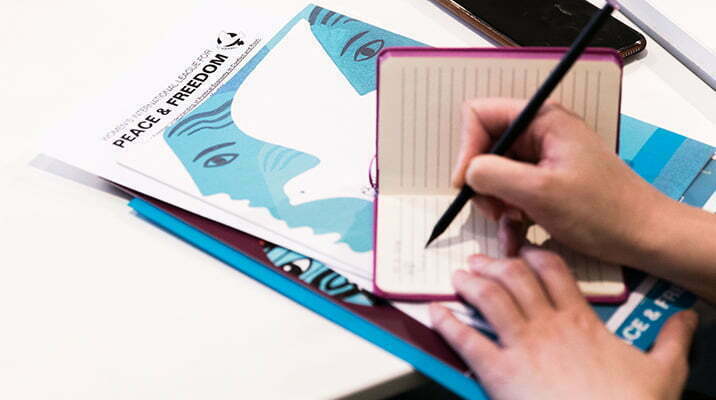It will tentatively convene in the year 2015, but discussion and plans of action are already underway for the Fifth World Conference on Women (5WCW). Yesterday we attended the Committee on the Status of Women meeting with the Conference of NGOs (CoNGO) in which we are a member. CoNGO consists of all the organisations that have consultative status with the United Nations. Talk of the 5WCW took up most of the three hour meeting.
On International Women’s Day, which took place on March 8, 2012, the UN Secretary General Ban Ki-Moon and the President of the UN General Assembly, Nassir Abdulaziz Al-Nasser proposed the conference. Ideally, it would build off of the Platform for Action, which was established at the Fourth World Conference on Women (1995) in Beijing, China.
Successes from the past 20 years are surely to be noted and celebrated, but the CoNGO representatives made clear that this conference should look closely at implementation and enforcement. Gender mainstreaming, while important, and mentioned repeatedly at the Beijing conference, has not been enough to advance women’s rights and this approach should be analysed.
Since 2015 is also the deadline for the Millennium Development Goals, there is opportunity to link agendas. The ‘Right to Peace’ will potentially be looked at as well to discuss its possibilities and what it would mean for women.
If the conference is to occur, CoNGO members would like to see these five main areas of focus on the agenda:
- violence against women, peace and justice
- education
- economic empowerment and employment
- women’s right to health
- migration and displacement
The conference seeks to provide space for women’s voices in order to re-energise the movement, seek new ideas and platforms, and inspire a younger generation of women leaders to emerge. It is about global collective monitoring and making sure we keep women’s rights on the global agenda.
However, there are some concerns and reservations about having the global conference. When it comes to controversial issues such as reproductive rights, universal agreement could be hard to come by, and therefore, prevent real progress from occurring. Some have suggested holding regional conferences instead.
Do you think there should be a Fifth World Conference on Women? And what would you want to see on the agenda? Tell us your thoughts in the comment box below.





